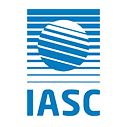ASSW 2023 Hosts
The Arctic Science Summit Week (ASSW) 2023 will be organized from 17 - 24 February 2023 in Vienna, Austria, by the International Arctic Science Committee (IASC) and hosted by the Austrian Polar Research Institute (APRI).
About the Organizers:
 |
The Austrian Polar Research Institute (APRI) is a research consortium that promotes and coordinates research and education in the area of polar sciences at the participating organisations. APRI currently comprises researchers from the University of Vienna, the University of Innsbruck, the University of Graz, the Central Institute of Meteorology and Geodynamics, and b.geos. The Austrian Polar Research Institute involves 17 research groups, including about 50 scientists in one of the three research areas: Polar Ecology: The Austrian Polar Research Institute aims at providing fundamental understanding of (a) the evolutionary, genetic, and ecological adaptations of organisms and communities in polar (marine, terrestrial, and ice/snow) environments and (b) the role polar ecosystems play in global biogeochemical cycles and potential feedbacks to climate changes Cryosphere and Climate: The reaction of the polar cryosphere to climate change is a key focus in climate research. Major research topics of APRI on polar ice and climate are the response of grounded ice to the disintegration of northern Larsen Ice Shelf at the Antarctic Peninsula, paleo-temperature interpretation from ice cores in Antarctica with respect to meteorological influences on the relationship between stable water isotopes and air temperature, the energy- and mass balance of glaciers in NW-Svalbard and NE-Greenland from extensive ground observations and modelling approaches as well as the mechanism of glacier outburst floods in NE-Greenland. Social and Cultural Systems: Indigenous peoples have inhabited the arctic and subarctic regions for millennia. In recent centuries, the colonial reach of southern states and empires has changed the political and demographic situation of these regions significantly. Even more recently, economic migrants from the Global South have started to move north, contributing to the colourful ethnic and cultural mosaic that characterizes the “New North”. |
 |
The International Arctic Science Committee (IASC) is a non-governmental, international scientific organization. The Founding Articles committed IASC to pursue a mission of encouraging and facilitating cooperation in all aspects of Arctic research, in all countries engaged in Arctic research and in all areas of the Arctic region. Overall, IASC promotes and supports leading-edge interdisciplinary research in order to foster a greater scientific understanding of the Arctic region and its role in the Earth system. |
